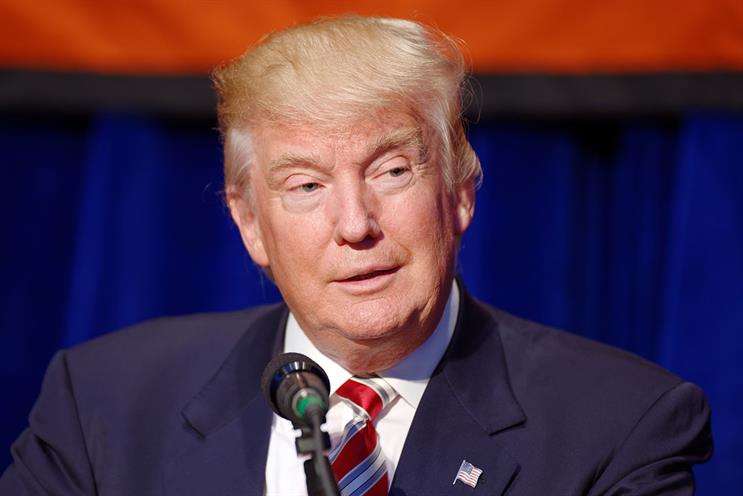Two winners at the Marketing Society’s annual dinner earlier this month encapsulate what it means to be a conviction brand.
Channel 4 picked up Brand of the Year after an incredible period defiantly reflecting the cultures of clearly-defined niche audiences. Its coverage for the Paralympic Games, for instance, was brilliant.
Second, Unilever’s chief executive Paul Polman was given an Outstanding Leadership award. In his speech, he reflected about what brands could learn from voters who drove Donald Trump’s presidential victory.
Urging marketers to reach out to the "people left behind", he added: "It’s not just politicians that are out of touch. I personally believe many business leaders are out of touch. You can’t understand the needs of the people if you stay in your head office."
That chimes precisely with my experiences. Brands finding real success are those reaching out far beyond the head office to create an authentic purpose that resonates with real people and reflects their desires.
Brands that don’t follow culture but shape it by taking a stand. Brands that build deeper and more valuable social connections by determinedly trying to set the agenda.
This is the new cultural dynamic in which marketers find themselves. It’s no longer good enough for brands to tell stories through marketing campaigns. They need to be the cultural stories.
Storytelling is no longer sufficient. For a brand to be more relevant and meaningful, it must be a storydoer.
Not just doing but creating, constructing, shaping and building. These are the characteristics of the new marketing pioneer – the cultural architect.
In an age where brands have lost the trust of consumers, these liberated architect-marketers and their conviction brands are designing a strategy around an issue rather than a product.
They understand that to have a bigger impact in today’s market, they must appeal to people’s emotions and that means championing an issue close to their hearts – and to what the brand represents.
Cultural purpose is at the heart of what they do and who they are, not just tacked on at the side.
One of the most inspiring campaigns of recent times has been about sanitary towels. Not a sentence I thought I’d write but Procter & Gamble’s ground-breaking #LikeAGirl series of ads for Always has helped rewrite the rules.
When girls reach their periods, their self-esteem sometimes plummets, they drop out of organised sport and struggle to compete with boys. Always, as the brand proudly emphasises on its ads, "wants to change all that". By using testimonies of real girls, the brand is reclaiming the phrase "like a girl" from those who use it as an insult.
Instead, "like a girl" should be empowering and society shouldn’t limit what girls can achieve. And Always is at the forefront of that instinct.
The brand stands for something far greater than what it is. Its purpose is now to shape and change culture. An architect. And it’s authentic – it oozes conviction. It’s not a sideline or PR boost, it’s at the core of what the brand represents – its values, meaning and purpose.
Brands are now leading cultural conversations by ensuring that the "purpose" is the brand, rather than being part of the brand.
The "doing good" bit is not just a happy consequence of doing well as it has been in the past, but encapsulates the brand’s responsible stance, inspiring others to behave with similar conviction.
How can a marketer achieve this? First, create an identity within an organisation so there is a culture based on a common purpose and built organically. Define the change by focusing on the meaning rather than simply transactions.
Next, improve cultural emotional engagement – internally, by encouraging teams to abandon silos and work across specialisms and, externally, by emotionally engaging with customers.
By understanding consumers’ values beyond purchasing habits and requirements, a brand can develop a purpose that matches those values.
Third, prepare to be a disruptive change agent and take a distinctive moral stance – Channel 4’s news coverage, for instance, is evidence of this.
Brands must also acknowledge their own limitations and utilise the expertise of external partners to craft solutions and change behaviours – not just other companies, especially smaller and tech-driven, but NGOs, charities and governments that can provide innovative expertise "on the ground".
Finally, it’s vital that any strategy has longevity and can evolve. To make a difference over a sustained period, brands need to develop a strategy that is economically viable as well as credible.
Conviction brands need to be bold to shape this new landscape, to galvanise change rather than just be inspired by it and that means they need to have conversations that aren’t just about themselves.
By having such conversations, brands will get closer to constructing a far more powerful and authentic strategy with cultural considerations at the centre. Not a conversation but a message. A message that says: conviction makes a brand matter.
Vanella Jackson is global chief executive of Hall & Partners


